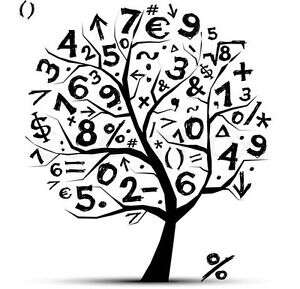OVERVIEW
Statistics is a mathematical science which deals with the collection, analysis, interpretation or explanation and presentation of data. It also provides the means for prediction and forecasting based on data.
Statistics as a tool is applicable to a wide variety of academic disciplines, from the natural and social sciences to the humanities, government and business. Its methods can be used to summarise or describe a collection of data; this is called descriptive statistics.
In addition, patterns in the data may be modelled in a way that accounts for randomness and uncertainty in the observations, and are then used to draw inferences about the process or population being studied; this is called inferential statistics.
AIMS AND OBJECTIVES
Probability is the foundation of Statistics and every course in the programme has an element of probability in it. Some minimum level of University Mathematics (Level 100 at least) is required for a good understanding of the Probability courses.
This is crucial to the Philosophy and Objectives of the B.Sc Statistics Programme at UG. We focus our Learning and Training Activities on the logic and principles that should guide rational decision making in conditions of uncertainty. We are certain that this philosophy equips our students with skills that all employers consider desirable.
INDUSTRY/GLOBAL TRENDS
Statistics is an old discipline, as old as the human activity. Its utility has been increasing as the ages goes by. In the past, it was used in the administrative departments of the states and the scope was limited.
From then on, it was used by governments to keep record of birth, death, population etc., for administrative purpose. These days however, fields like agriculture, economics, sociology, business management etc., are now using Statistical Methods for different purposes.
Various disciplines have also evolved out of the subject such as mathematical statistics, which is concerned with its theoretical basis. There is also a branch of statistics called exact statistics that is based on exact probability statements.
ASSESSMENT
Students are assessed on the basis of completed assignment, examination, laboratory activities and project or other methods outlined in specific subject outlines
TUITION METHODS
Lectures, Class discussion and Practical tutorials.
CAREER PROSPECTS
There are excellent opportunities for statistics graduates. Typical tasks of a Statistician may include:
• Developing econometrics, time series, and forecasting models for determining the cause and effects of various socio-economic variables on any society.
• Consulting in the design and analysis of clinical studies, evaluating new pharmaceutical agents;
• Developing theories of learning and behaviour in conjunction with psychologists;
• Designing experiments for agricultural, ecological, environmental, or energy- related studies;
• Determining mortality, morbidity, and accident rates for an insurance company;
• Serving as an opinion pollster for a public relations firm or a television network; Many undergraduates also proceed directly to graduate work in statistics, actuarial science, financial mathematics, risk management and many others.








